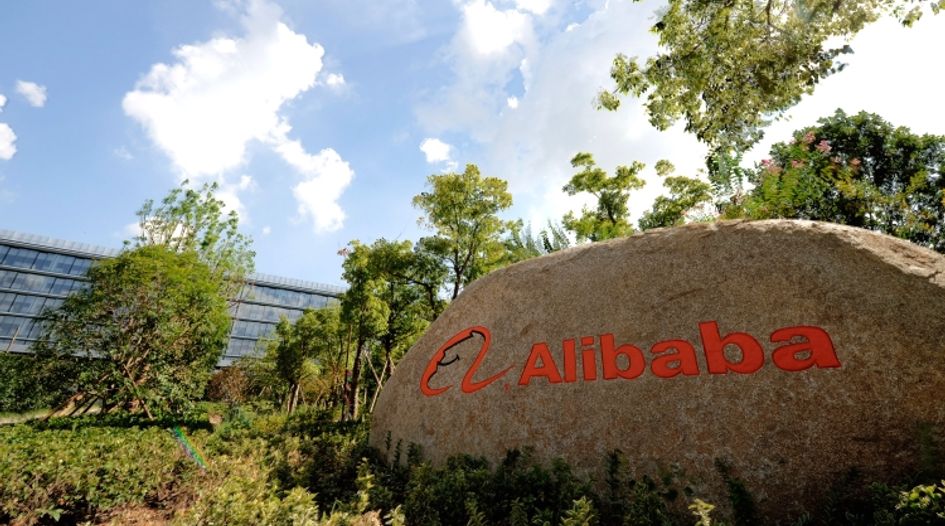Alibaba Anti-Counterfeiting Alliance seized $536.2 million in fake goods last year: WTR exclusive

- AACA actions resulted in shutdown of 524 manufacturing and distribution locations
- Michael Kors, Siemens, Dyson and Coach among brands joining alliance this year
- Alibaba eyes expansion of program and seeks to host overseas events
WTR can exclusively reveal that in 2018, criminal investigations led by Alibaba and the member brands of is anti-counterfeiting alliance resulted in the arrest of 1,277 suspects and the shutdown of 524 manufacturing and distribution locations, yielding counterfeit product seizures that totaled $536.2 million (RMB 3.6 billion).
An official Alibaba Anti-Counterfeiting Alliance (AACA) release is due to be issued tomorrow and follows the latest meeting of the alliance in Shanghai. At that gathering – which drew attendance from more than 300 people from 16 countries and regions, most of whom represented AACA brands as well as representatives from law enforcement and academia – Alibaba also stated that 97% of takedown requests from AACA members are being processed in 24 hours (during business days).
As we reported previously, the alliance was originally founded in January 2017 with 30 founding members (including 3M, Ford, Johnson & Johnson, Mars, Procter & Gamble, Louis Vuitton, and Sony). By May 2018 the number of members had broken the 100 mark and now stands at 132 brands from 12 industries, including Honda, Samsung and Richemont. Tatter signed up in January, joining Michael Kors, Tommy Hilfiger, Fossil, Siemens, Dyson, Kohler, and Coach as new members so far in 2019.
Alibaba has previously noted that participants work together in six areas: online monitoring and protection, a product test-buy program, offline investigations and enforcement actions, industry-law enforcement workshops, litigation tactics and public awareness campaigns. Providing more detail to the alliance’s activities, Alibaba notes that AACA members are divided into industry working groups to allow for better information-sharing within their sectors, while an AACA advisory board has been created to allow members to provide feedback in areas such as IPR enforcement-related strategies, policies and procedures, as well as new industry trends and platform practices in e-commerce.
Speaking this week, Alibaba senior vice president Michael Yao commented: “Over the past two years, we have used our technology and data to strengthen the fight against counterfeits. The AACA is now the benchmark and model for brand protection in China and around the world. We are all part of the solution and collaboration among industry leaders is the only way to effectively combat this problem." Looking ahead, Yao notes that the alliance intends to increase its membership and also host outreach events outside China.
For Alibaba such relationships are clearly a ‘win-win’ due to providing a reputational as well as economic boost. Large brands are key players in terms of sales presence on its platforms and it is not the only e-commerce giant seeking to up its anti-counterfeiting credentials amongst these stakeholders. As we reported earlier this month, Amazon has unveiled its own Project Zero, which seeks to provide rights holders with takedown tools and technology and empower members of its own Brand Registry program to take direct action against infringing listings.
Whatever the motivation, though, such partnerships are clearly working for companies engaging with Alibaba. The forthcoming release announcing these latest figures contains a host of testimonials from member brands. One such is from Sam Zhou, general manager of global brand protection at P&G Greater China, who called AACA a "truly global collaboration" and added: "We want to make sure the best practices that we are making here in China will be replicable in the rest of the world", contending that Alibaba has set "a very high bar" for other e-commerce platforms.
Going forward, international outreach and events would appear to be key for the company. Indeed, we have observed previously that brand protection professionals on the ground in China have, in recent years, voice noticeably more positivity towards the company’s anti-counterfeiting efforts than their international counterparts. That appears to be changing (for instance, The American Apparel & Footwear Association – which in previous years has recommended that Alibaba platforms be listed on the Office of the US Trade Representative’s Notorious Markets list, this year opted not to recommend further inclusion, pointing to “improvements in online enforcement on Taobao and other Alibaba platforms as well as an ongoing and productive dialogue that we have conducted with Alibaba”). The natural next step is to take this messaging on the road and reach out to brands that either don’t have China team presence or have not been exposed to its AACA program. Judging by Yao’s comments, the plan to do so is in motion.


